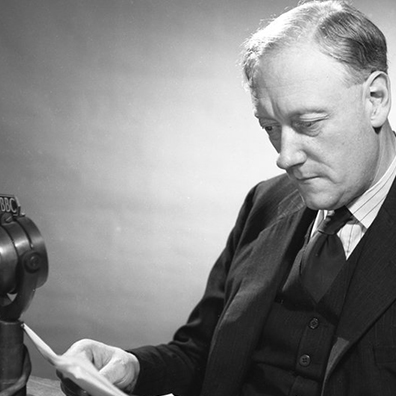
War, Peace, or better yet – Sleep

Length: 2,300 words/10 minutes
“This story shall the good man teach his son; And Crispin Crispian shall ne’er go by, from this day to the ending of the world, but we in it shall be rememberèd-We few, we happy few, we band of brothers; For he to-day that sheds his blood with me shall be my brother; be he ne’er so vile, this day shall gentle his condition; And gentlemen in England now a-bed shall think themselves accurs’d they were not here, and hold their manhoods cheap whiles any speaks that fought with us upon Saint Crispin’s day.“
Agincourt—the place where the English foot soldiers and archers with their frightening longbows were lent a hand by the thick battlefield mud in cutting down the cream of the French nobility—many of whom were so eager to defeat the odious (in their eyes) English that against better advice they insisted on being in the forward ranks and leading the attack. Clearly, it was not just the horses that were champing at the bit for some action.
While I appreciate the French nobility’s keenness to join the unpleasantries and lead from the front, they were certainly cut from different timber than I was when I served in the military. Now I am of course not hinting that one should ever shirk duty when called or pip one’s buddies, but I learned quickly that one should never just heedlessly volunteer. You see, when it comes to volunteering one should take a deep breath, reevaluate the situation, and only then raise your hand. What’s the hurry after all? There always seems to be enough bad stuff going down so no worries about there being enough to go around. Of course, this advice falls 600 years too late for those French Knights and soldiers who perished on that October afternoon in 1415.
While it is perhaps Jerome Robbins’ adaptation of Romeo and Juliet into West Side Story that truly made Shakespeare accessible for the modern masses, the late historian Stephen Ambrose did pretty well for himself in “bringing the Bard to a wide audience” sweepstakes. While West Side Story was the Romeo and Juliet romance made modern, Ambrose was targeting the gents more than the womenfolk with his book, and later film adaptation, The Band of Brothers.

Band of Brothers
Joined together in the bonds of war
B of B is a story of war and combat and not one of the Capulets’ hatred for the Montagues or the Sharks abhorrence of the Jets. Instead of dancing and singing on the streets of late 1950s New York City a la West Side Story, Band of Brothers follows a closely knit American paratroop unit as they trained together, jumped into France on D-Day, and then fought their way across Europe to take their disagreements and discussions with Nazism directly into the German heartland.
Now of course there is no shortage of war books and movies in the modern canon (no pun intended with the homophone here), but Ambrose’s skills as a raconteur and his brilliant use of Henry V’s words as a foundation to tell us how our “boys” were over there soldiering on our behalf were a sure bet for a best seller. Fortunately, the book avoids that all too frequent pothole of the embarrassing, and at times even insulting, use of stereotypes regarding those “boys” who were fighting for us.
Forgive me for the aside dear reader, but I have to say just how much I hate that term “boys.” While many of that greatest generation and those before and after were indeed young, they had been trained to draw a very dangerous sword to protect us and there was nothing childlike about this skill. In a quote often misattributed to George Orwell (see Note #1), one reads: “People sleep peaceably in their beds at night only because rough men stand ready to do violence on their behalf.” Of course, these rough men are exactly the same “boys” of which those on the Home Front often speak.
My protests about this term have fallen on deaf ears with Hollywood writers so unfortunately, this faintly patronizing word remains in use. Nor does the target audience of these war books and films seem to care a whit. And since that audience is composed predominantly of boys and gents aged anywhere from 9 to 99 I will continue to lose this argument.
Either way, you know how laden with stereotypes these books and movies can be. There is always the irrepressible and fast-talking Italian. There is the quiet lantern-jawed GI of Eastern European stock who never plays the court jester but is sure to be there in a pinch.
Naturally, we have the hero in the American everyman—laconic, pure of spirit, keen of resolution, and imbued with a goodness because… well… just because. Through him, we can chart the transitions in the psyche and physique that the battle brings.
As regular as a clock there will be a “Smitty.” Not a Smyth, or even Smythe with the e at the end, both of which hints at a blue-blood lineage, but rather the more simple spelling of Smith to denote that he is cut from everyman stock. This name of Smith must then, as if by some shop-worn Hollywood rule, be re-monickered into a Smitty. Why? Well, you are not allowed to ask. Again, much to our misfortune, it just is.
Of course, let’s not forget about how New York City will be represented, and there is no doubt that it will be represented, for what war movie can be filmed without there being some character from the “City?” Historically directors have taken the easy way and offset that irrepressible Italian with a reluctant Jewish scholarly type who the audience just knows is going to earn a Ph.D. in physics or psychology after the war and take up a teaching position at Cal Tech or Columbia. In the meantime though, he struggles to overcome his cerebral musings in order to earn his chops in the unit….Yes reader, in case you have not seen these films they really do lay it on that thick with the stereotypes and yes, it really does make you wince.
Yet the powerful imagery of these movies is not to be underestimated. A good many men in that age 15 to 99 male audience cohort actually believe that something like the staggeringly sanitized (yes, the reality was incomprehensibly far worse) opening beach scene in Saving Private Ryan was a realistic interpretation of what it must have been like “to have been there.”
Not to criticize anyone’s movie-going preferences as I have also paid my money to see these films as well, but these books and movies have a very deep resonance with their audiences. I think it relates to that aspect in the far reaches of the psyche regarding the desire to know if one would have “the right stuff’ in combat. Why this is such a strong longing in males particularly (although not exclusively male by any means) probably has to do with genes, cultural inclinations and indoctrinations, and the quite honorable ideal of wishing to defend one’s tribe. This simple quote of 2,400 years ago from the historian Thucydides seems to say it all:
In a single sentence our ancient Greek chronicler describes youth who were fascinated by the war stories of their elders and wondered what it would be like to join the fight. A question that has been pondered by every generation in every era. It never changes.
As an average gent
Once, over a Christmas break from college, I remember watching an old black and white movie starring Ronald Reagan in the role of a WW1 soldier. I don’t remember much of it other than a scene of the unit mustering up in a large theater. The town was out to cheer them and the soldiers were all chipper and keen. A band made it all the more festive and Reagan, with all due respect to the office of President that he later held, had the most permanent and radiant $%#@-eating grin on his face as he made his way through the throng. Naturally, the camera panned to his attractive Significant Other who was doing what women of that era did—wishing their men well as they went off to biff the Germans. Neither Reagan nor his S.O. seemed to hedge the slightest worry that things could turn out badly and so it was all smiles.
Not to be a killjoy, but I cringed at this. The reality was that General Pershing was in France awaiting these freshly scrubbed up lads so that they could turn the handle of the meat grinder as hard as needed to get the Hun to surrender. In other words, while Ronald Reagan’s character might have
No wonder that men and women who have been in real combat are often so indifferent about these movies. Even if they are meant as an homage to the bravery of those who fought, the gulf with reality is simply too wide.

Ok, I am sure that at this point you are asking what in the blazes this has to do with the title of this essay—sleep. You are telling me that if you had wished to read a movie review you would have gone to the IMDB website. Am I correct?
While I apologize for that lengthy excursion into war topics, they actually do have something to do with sleep. For apart from the beautiful linguistic and motivational finery in King Henry’s soliloquy, we notice his reference to sleep in these lines: “And gentlemen in England now a-bed. Shall think themselves accurs’d they were not here.“
Unfortunately, as he juxtaposes his posse (the Band of Brothers) with those abed back in England, he seems to strike a most un-complimentary attitude regarding sleep.
In my mind though, any press regarding sleep is good press. A-bed, or as is more common these days, abed without the hyphen, is one of my favorite words. Admire it for its succinctness, its descriptive power, its honor to a necessary human pastime, and the sheer euphony of all the words it is related
Side note: It is sad that Morpheus had his name expropriated for morphine as I believe his intentions to be good when he nightly tugs us off into dreamland.
Now for the record, I also fully endorse the word a-sofa but never a-couch which has less than salutatory implications. Sofas, or at least those that are fit for serious snoozing, are a more modern development and since Shakespeare had limited options when it came to home furnishings it is understandable that he chose a bed for his imagery on which to be…well…abed. Either way, abed or
Yet Henry’s approach nags at me still. He disparages the idea of being asleep when he thinks someone should be awake. He seems dismissive, condescending, and extremely exclusionary. He quite clearly implies that those not with him on the battlefield will have to live the rest of their lives in regret. No banding into the Band of Brothers for them!
Worse, this rhetoric is ammunition for the early-to-rise over-achieving brigade to target the sleeping, dozing, and napping public with barbs and judgments. They think being abed is anathema to the public good, personal industriousness, and solid citizenry.
I encourage you not to to let the tyranny of such words get you down. When you watch war films and listen to Henry’s speech don’t be filled with remorse or regret but instead enjoy the sweet ambrosia of being abed or
The demands and pleasures of an average life are simple and honest and so sleep is one of nature’s recompenses to us for our humble station in life. Thus I issue a warning–if you are a prospective King Henry the 5th, your snarky put-downs of slumber will fall on decidedly deaf ears!
Keep being average!
![]()
Footnotes
Note 1: This site discusses whether this quote actually stemmed from Orwell







Was H5 down on sleep, or down on sleep while not in Agincourt?
You cover a lot of ground here, and much of it is sheer fun!
While I am a devoted fan of sleep, I can also agree with Shakespeare via King Henry V. The Pew Research Center reports that in 2017 twenty percent of the members of Congress (20% of Senate, 19% of The House) have ever served in the US Militaryhttp://www.pewresearch.org/fact-tank/2017/11/10/the-changing-face-of-americas-veteran-population/.
The last US President to see actual combat was GHW Bush, his tour ended 73 years ago.
Conceding that men of reason and goodwill can disagree whether all uses of our military have actually been necessitated by National Interest, I see that as all the more reason to bemoan the lack of first-hand experience among civilian leadership.
The same Pew report put the percentage of of US population in 2016 “having military experience” at 7% (only 38% of the rate of 1980).
How is it tenable, then, that the ensuring of continued liberty against foreign enemies of so many rests upon the staked lives of so very few? And how cheap must the blessings of liberty seem to those for those who have nothing but said liberty as skin in the game, and know not its worth?
From this perspective, I find those abed while the Battle of Agincourt raged possibly to be deserving of scorn. I fear we are creating a Warrior Class in this country – if we haven’t already done so. Doing so, I think, further divides us as a people from the truth and bonding of service to the nation.
Great thoughts Fitz! Thank you for joining in the discussion. The last sentence is one we ignore at our own peril.